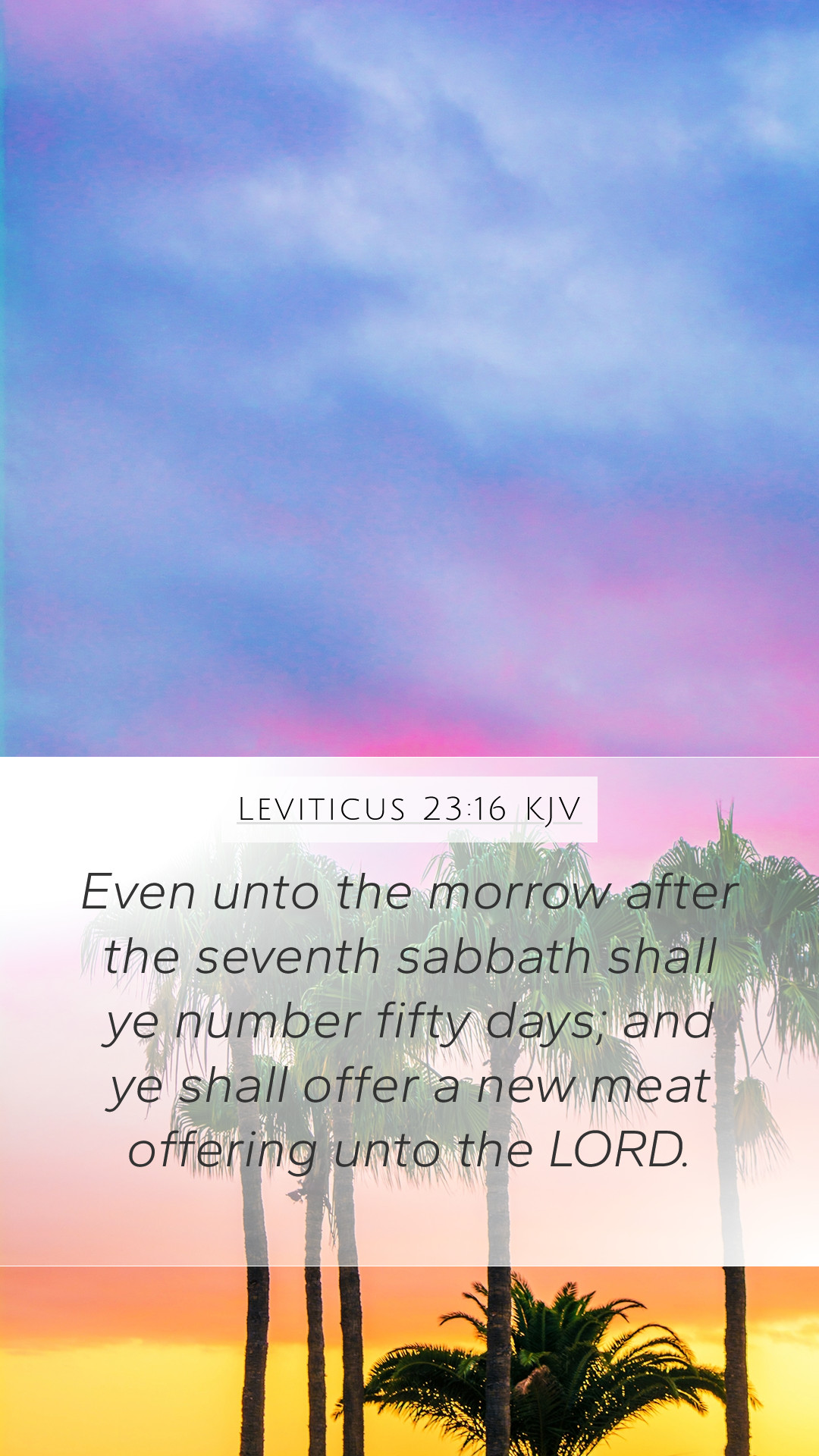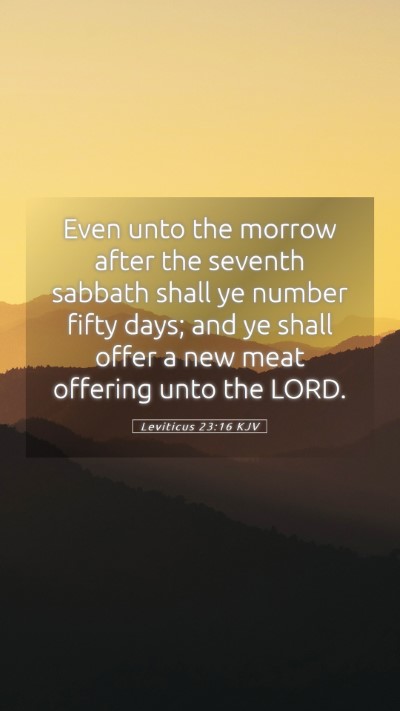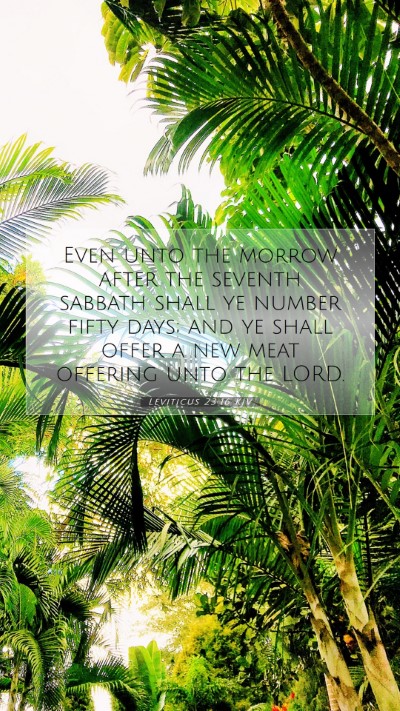Understanding Leviticus 23:16
Leviticus 23:16 states: "Even unto the morrow after the seventh sabbath shall ye number fifty days; and ye shall offer a new meat offering unto the Lord." This verse is part of the instructions regarding the Feast of Weeks, also known as Pentecost, showing its significance in the Jewish tradition and its implications in Christian theology.
Overview of Leviticus 23:16
This verse serves as a directive given by God to the Israelites about the Feast of Weeks, which occurs fifty days after Passover. Key components of this verse include:
- Counting of Days: The importance of counting seven weeks or forty-nine days followed by a day, which symbolizes completeness in time.
- Offering a New Meat Offering: The act of presenting fresh offerings unto God signifies gratitude and acknowledgment of His provisions.
- Divine Command: The emphasis on obedience to God's instructions underscores the relationship between God and His people.
Insights from Commentators
Several prominent scholars and commentators have offered their interpretations of Leviticus 23:16, enhancing our understanding of its meaning:
Matthew Henry
Henry emphasizes the Feast of Weeks as a time of joy and thanksgiving. He notes that it represents the culmination of the grain harvest, reminding the people of God's provision. He also points out the contrast between the old grain offerings and the new, connecting it to the spiritual renewal found in Christ.
Albert Barnes
Barnes provides a detailed analysis of the timing and significance of the offerings. He highlights the symbolism of the fiftieth day as a representation of the Holy Spirit's coming at Pentecost, marking a new beginning for the Christian Church. His commentary also raises the importance of joy and communal celebration during this festival.
Adam Clarke
Clarke elaborates on the ritual aspects of the offerings and their relevance. He points out that the term “new meat offering” indicates a fresh start or a renewed relationship with God, reminding the Israelites to always give thanks for their harvest and the blessings they receive.
Theological Implications
The call for a new offering upon the completion of the forty-nine days signifies God's desire for continual renewal and dedication. This teaches us about:
- Continuous Gratitude: The necessity of offering our best to God, reflecting our appreciation for His goodness.
- Spiritual Renewal: A constant reminder of the need for spiritual rebirth and the acknowledgment of God's ongoing work in our lives.
- Communal Worship: The celebration of feasts strengthens community bonds as people come together to honor God.
Application for Modern Believers
Understanding Leviticus 23:16 assists modern believers in applying biblical teachings to daily life. Here are some applications:
- Gratitude: Establishing a routine of giving thanks to God for His provisions, both material and spiritual.
- Celebration: Engaging in community activities that celebrate God's goodness, akin to the Feast of Weeks.
- Spiritual Reflection: Taking time to reflect on personal spiritual growth and the ways God has worked in one’s life.
Cross References
Leviticus 23:16 is related to several other scripture passages that reinforce its themes:
- Exodus 23:16: Discusses the Feast of Harvest, showcasing the agricultural cycle as a time for thanksgiving.
- Acts 2:1-4: The coming of the Holy Spirit at Pentecost relates back to the significance of this day in Jewish tradition.
- Deuteronomy 16:9-12: This passage outlines the celebration of the Feast of Weeks and the attributes of the offerings.
Conclusion
Leviticus 23:16 offers profound insights into the rhythm of worship through the act of remembrance and offering. It challenges believers to consider the deeper meanings of their practices and how they can understand and celebrate their relationship with God through acts of gratitude, community, and spiritual discernment.


